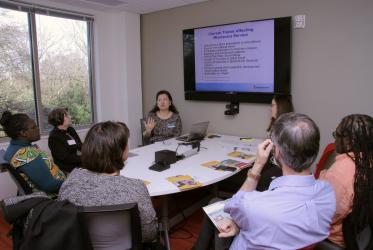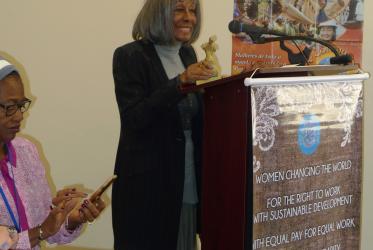Displaying 161 - 180 of 314
09 August 2017
Ecumenical Patriarch visits WCC
24 April 2017
Church leaders unite their voices against modern slavery
09 February 2017
Out of the darkness
28 November 2016
Caribbean Christians craft unity prayers
08 September 2016
Study group focuses on moral discernment in churches
04 August 2016





